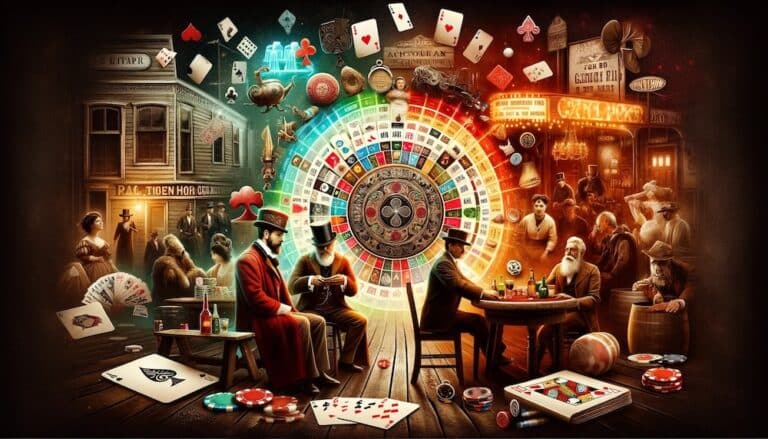Rummy and Poker stand as two titans, each boasting widespread popularity and deep historical roots. These games have evolved over centuries, crossing cultures and continents to become the beloved pastimes we know today. But which of these card-playing giants came first? To answer this, we delve into the annals of history, exploring the origins of Rummy and Poker, in a quest to trace their lineage and understand the evolution of card gaming through the ages.
The Origins of Poker
Poker’s ancestral story begins in the 16th century with a Persian card game known as As-Nas. This game, played with a deck of 25 cards featuring five suits, is considered by many historians to be the earliest form of Poker. However, Poker as we recognize it today has its roots more directly traced to the 17th century French game Poque, which made its way to New Orleans in the 18th century through French settlers. Poque, played with a deck of cards and involving betting and bluffing, evolved in America into the game of Poker, incorporating features such as the 52-card deck and the flush.
The Genesis of Rummy
Rummy, on the other hand, is believed to have emerged from the 19th-century Mexican game Conquian, which itself is thought to be derived from the Chinese card game Khanhoo and possibly further back to the Chinese game of Mahjong. Rummy’s core mechanics of matching and melding cards can be seen as an evolution of these earlier games. The game spread across America and Europe in various forms, with each region adapting its own set of rules and variations, contributing to the rich tapestry of Rummy games played today.
Comparative Timeline
While the precise origins of both games are shrouded in some degree of mystery, the evidence suggests that the games that would evolve into modern Poker appeared earlier than those leading to Rummy. The transition from Poque to Poker in the American frontier during the 18th and 19th centuries predates the widespread popularity of Rummy games, which gained significant traction in the 20th century.
Cultural Impact and Evolution
Both Poker and Rummy have had profound cultural impacts, shaping gambling, strategy, and social interaction across the globe. Poker’s rise in the American West is intertwined with the mythology of the frontier, becoming a staple of saloon culture and later, the high-stakes world of casino gambling. The game has evolved into a global phenomenon, spawning countless variations and a competitive scene that culminates in events like the World Series of Poker.
Rummy, with its simpler, more accessible rules, has become a family and social favorite, played in countless forms around the world, from the drawing rooms of Europe to the verandas of India. Its appeal lies in its adaptability and the social interaction it fosters, making it a game for all ages and occasions.
Conclusion
While the origins of Poker are slightly more ancient, both Rummy and Poker have centuries-old histories that reflect the evolution of card games and their significance in human culture. From the saloons of New Orleans to the living rooms of the modern home, these games have transcended their origins to become integral parts of the world’s gaming heritage.

Garry Sputnim is a seasoned journalist and storyteller with over a decade of experience in the trenches of global news. With a keen eye for uncovering stories that resonate, Alex has reported from over 30 countries, bringing light to untold narratives and the human faces behind the headlines. Specializing in investigative journalism, Garry has a knack for technology and social justice issues, weaving compelling narratives that bridge tech and humanity. Outside the newsroom, Garry is an avid rock climber and podcast host, exploring stories of resilience and innovation.


